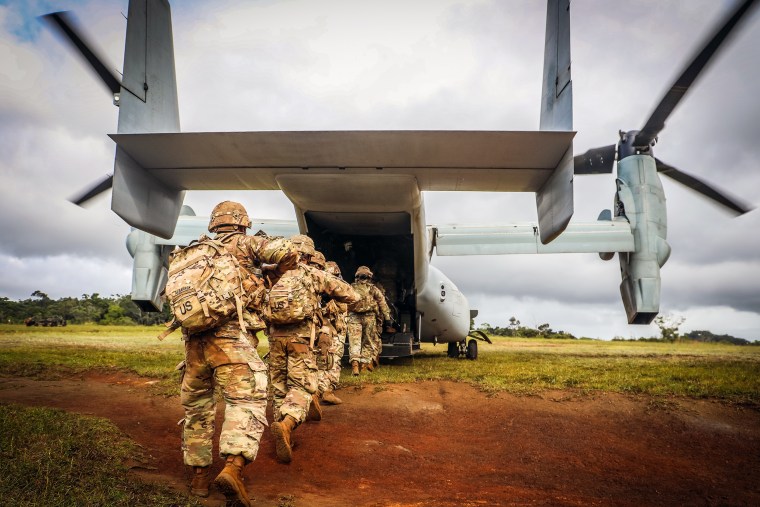WASHINGTON — The American public's trust and confidence in the U.S. military and the police has fallen by double digits since 2018, according to a survey conducted by the Reagan Presidential Foundation and Institute in February — but they still remain the two most trusted institutions in the country by far.
From 2018 to 2021, the percentage of respondents with "a great deal" of trust in the military fell from 70 to 56, a decline of 14 percent, while the percentage with the same amount of trust in law enforcement fell from 50 to 39.
During the same period, trust in the president rose a few percentage points to 30 percent, trust in Congress doubled — to just 10 percent — and trust in the media fell from 16 to 14 percent.
According to the Institute, since its 2018 survey, "the military declined in trust across all major demographic subgroups (including age, gender, and party affiliation) by double-digit percentage points."
Of survey participants, only 38 percent of participants under 30 say they have a great deal of confidence in the military, compared with 44 percent of African Americans and 51 percent of women.
"The decline in trust and confidence in the military is troubling and we need to better understand what is causing it," said Roger Zakheim, executive director of the Reagan Institute. "But it would be wrong to equate a decline in confidence in the military with a desire for America to withdraw from the world."
Other survey findings showed that 74 percent of respondents — 87 percent of Republicans and 67 percent of Democrats — were in favor of increased defense spending. Higher overall percentages favored boosting spending for health care and education.
Thirty-seven percent of respondents saw China as the greatest threat, to the U.S., with 16 percent picking Russia. In 2018, 30 percent picked Russia, while 21 percent chose China.
Republicans were more likely to see China as the biggest global threat, while Democrats were more likely to name Russia. And in what may be a reflection of the foreign policy preferences of the most recent GOP president and the Democrat currently holding the office, Republicans were more likely to support decreasing troop levels in Afghanistan.
In a statement, Pentagon press secretary John Kirby said, "We are aware of the report and look forward to reading it when it is available. We appreciate the support the American people continue to provide the men and women of the armed forces, and we take seriously our obligations to always deserve their trust and confidence.”
The survey was conducted from Feb. 4 to Feb. 14 and had more than 2,500 participants. The Reagan Institute, a nonprofit dedicated to promoting the legacy of former President Reagan, did not conduct the annual survey in 2020, delaying it until 2021.
